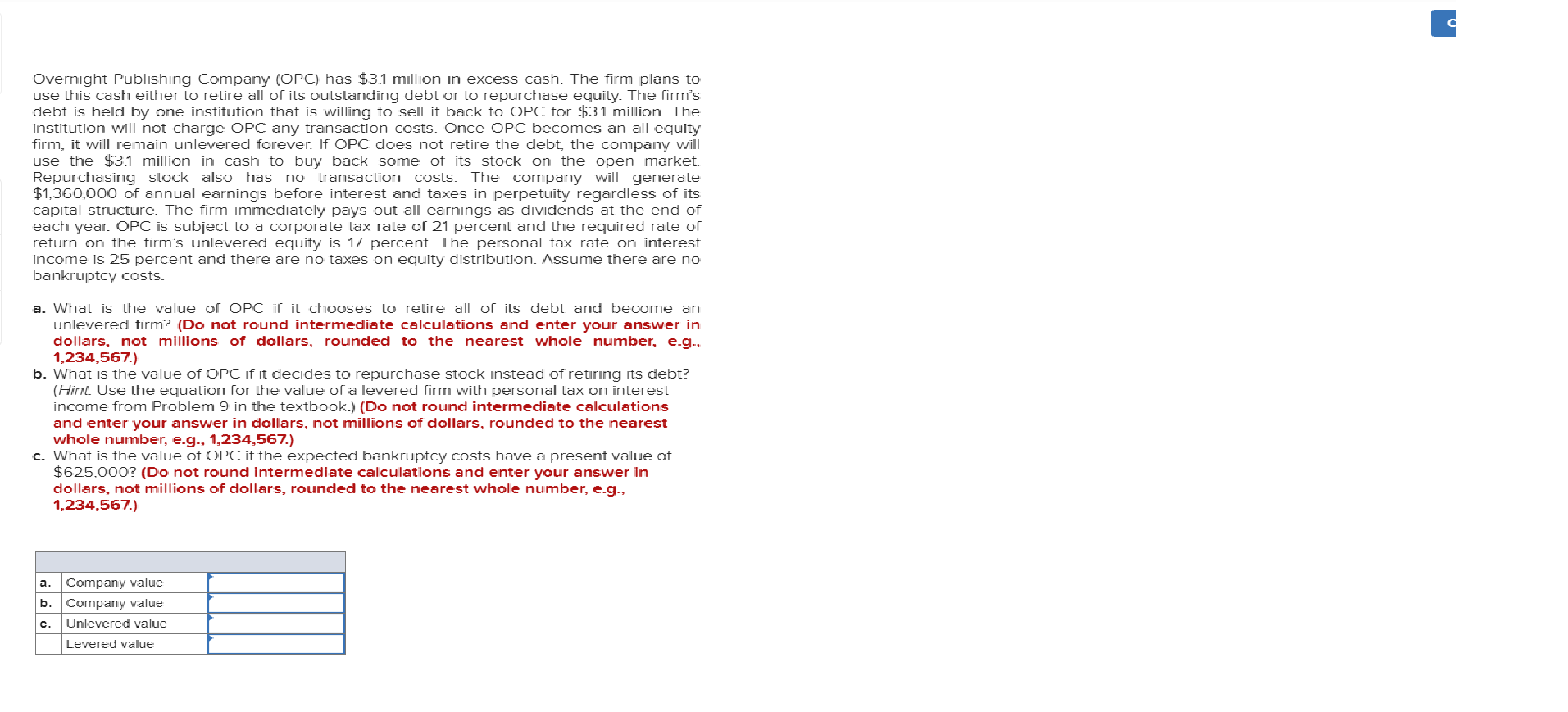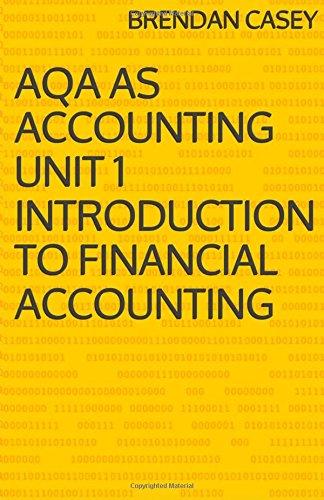Question
Overnight Publishing Company (OPC) has $3.1 million in excess cash. The firm plans to use this cash either to retire all of its outstanding debt
| Overnight Publishing Company (OPC) has $3.1 million in excess cash. The firm plans to use this cash either to retire all of its outstanding debt or to repurchase equity. The firms debt is held by one institution that is willing to sell it back to OPC for $3.1 million. The institution will not charge OPC any transaction costs. Once OPC becomes an all-equity firm, it will remain unlevered forever. If OPC does not retire the debt, the company will use the $3.1 million in cash to buy back some of its stock on the open market. Repurchasing stock also has no transaction costs. The company will generate $1,360,000 of annual earnings before interest and taxes in perpetuity regardless of its capital structure. The firm immediately pays out all earnings as dividends at the end of each year. OPC is subject to a corporate tax rate of 21 percent and the required rate of return on the firms unlevered equity is 17 percent. The personal tax rate on interest income is 25 percent and there are no taxes on equity distribution. Assume there are no bankruptcy costs. |
| a. | What is the value of OPC if it chooses to retire all of its debt and become an unlevered firm? (Do not round intermediate calculations and enter your answer in dollars, not millions of dollars, rounded to the nearest whole number, e.g., 1,234,567.) |
| b. | What is the value of OPC if it decides to repurchase stock instead of retiring its debt? (Hint: Use the equation for the value of a levered firm with personal tax on interest income from Problem 9 in the textbook.) (Do not round intermediate calculations and enter your answer in dollars, not millions of dollars, rounded to the nearest whole number, e.g., 1,234,567.) |
| c. | What is the value of OPC if the expected bankruptcy costs have a present value of $625,000? (Do not round intermediate calculations and enter your answer in dollars, not millions of dollars, rounded to the nearest whole number, e.g., 1,234,567.) |

Step by Step Solution
There are 3 Steps involved in it
Step: 1

Get Instant Access to Expert-Tailored Solutions
See step-by-step solutions with expert insights and AI powered tools for academic success
Step: 2

Step: 3

Ace Your Homework with AI
Get the answers you need in no time with our AI-driven, step-by-step assistance
Get Started


